Swim with whale sharks in Donsol's crystal-clear waters. Witness their immense size and graceful movements. Sustainable tours operate November to June, peaking in sightings during peak season. Respecting these gentle giants is key; safety guidelines are strictly enforced. Planning ensures a memorable trip supporting local conservation.
Donsol: Whale Shark Capital
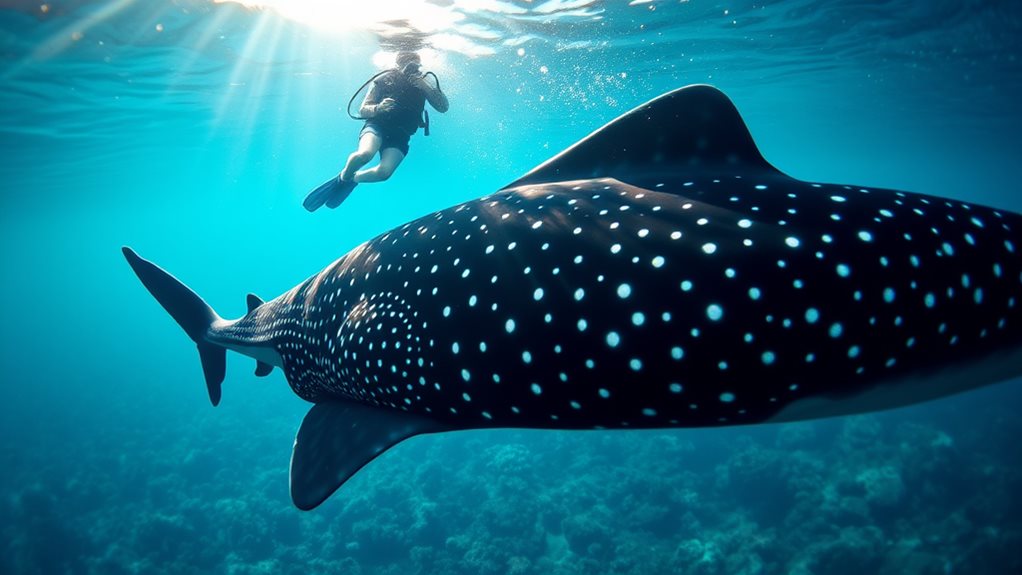
Donsol, a Philippine municipality, became a global focal point in 1998. A massive whale shark aggregation sparked investigation, confirming an unprecedented concentration.
March 1998 saw Donsol become the Philippines' first whale shark sanctuary. A UNDP grant funded the Butanding Ecotourism Development Project, establishing sustainable tourism and conservation.
The local community, working with the WWF, transitioned from destructive fishing to ecotourism. Jobs were created for guides, BIOs (Butanding Interaction Officers), hotel and restaurant staff.
Strict rules ensure safe, respectful whale shark encounters: no touching, feeding, or herding. You'll learn these rules before your three-hour adventure.
Conservation saved a species and transformed the community. Experience this successful blend of people and nature.
Best Time for a Visit
Whale sharks are in Donsol Bay November to June; peak season (February–May) offers the best sightings.
Note that March and April have the highest sighting probability. February offers increasing sightings; May, decreasing.
Regulations for Interaction
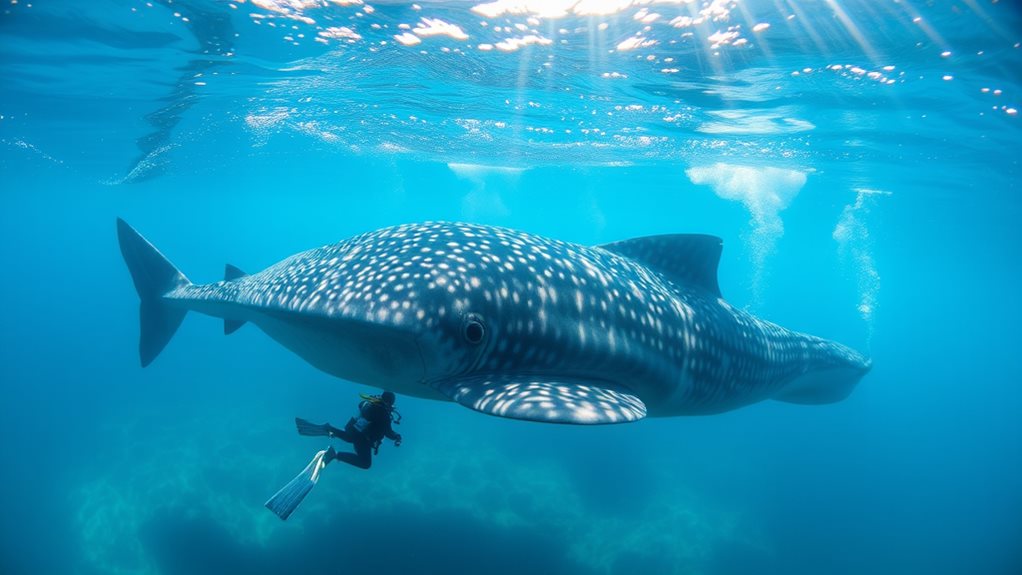
Donsol whale shark interaction:
Maintain a 3-meter distance from head and body, 4 meters from the tail.
No touching.
No flash photography.
No motorized underwater devices.
Don't obstruct their path.
Six snorkelers maximum per whale shark; 30 boats maximum.
Each boat has a driver, guide, and BIO (Butanding Interaction Officer).
The BIO controls water entry.
Strong swimming is essential; fins required.
Three-hour bay limit; morning only.
Pre-entry instructional video mandatory.
No feeding.
Booking Your Tour
Book your Donsol whale shark tour. Prices range from ₱2,550.00 to ₱6,099.00, including van transfers. Group discounts are available. Foreigners pay a ₱200.00 registration fee. Payment confirms your booking; some operators allow "pay later." Cancel free up to 24 hours prior. You'll get an e-voucher and reminders.
| Feature | Details | Feature | Details |
|---|---|---|---|
| Tour Duration | 3-8 hours | Pick-up Time | 6:30 AM – 7:30 AM |
| Price Range | ₱2,550.00 – ₱6,099.00 | Transportation | Round-trip transfers from Legazpi available |
| Inclusions | Snorkeling gear, boat, guide, refreshments | Cancellation | Free up to 24 hours before tour |
| Group Rates | Discounts available for larger groups | Voucher | Electronic copy required |
Use accredited local operators. Tours include guides, drivers, and BIO guides (where applicable). A detailed itinerary, registration, and video briefing are provided. Be on time; late arrivals may forfeit their booking. Consider combining with other tours, such as firefly watching.
What to Expect on a Trip
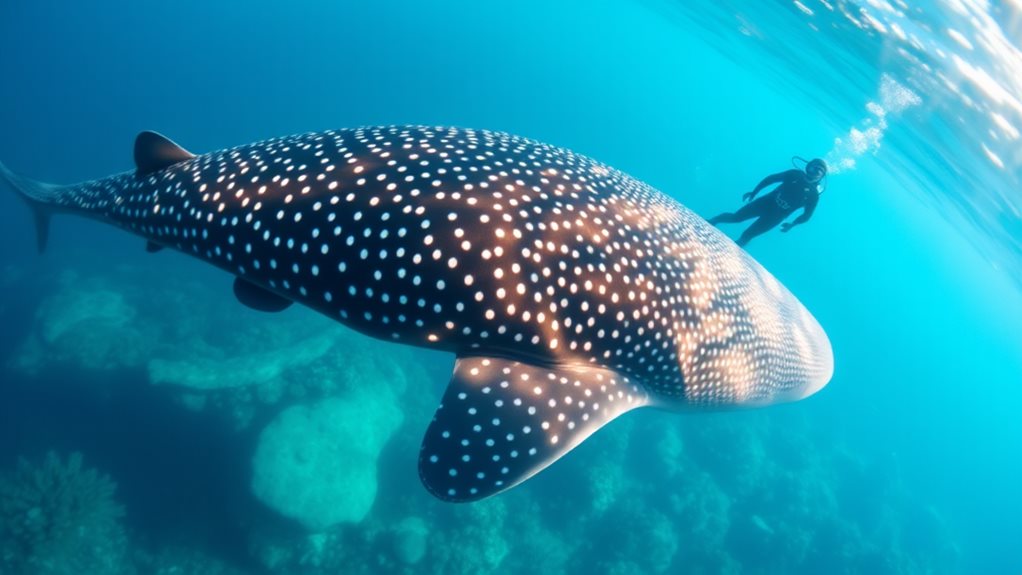
Pickup starts your Donsol whale shark adventure.
A safety briefing precedes a small registration fee at the visitor center.
You'll board a boat (max 6 guests + crew).
Spotters locate whale sharks.
A guide instructs water entry; maintain distance, no touching or feeding.
Swim time: ~10 minutes.
No flash photography.
Sightings aren't guaranteed; water clarity varies.
Total tour time: ~3 hours.
Sustainable Tourism Practices
Donsol's whale shark tourism prioritizes sustainability. Strict rules protect both whales and visitors: no touching, six snorkelers maximum per whale shark, and mandatory distance. Scuba diving and motorized devices are banned.
The Donsol Integrated Conservation Program (WWF & UNDP) trained locals, creating jobs (spotters, boat drivers, BIOs). Donsol's economy transformed from a struggling fishing village. Your visit funds conservation and local businesses.
Participate in citizen science by documenting whale shark sightings. Strict monitoring ensures whale shark health and natural behavior. Effective waste management protects the marine ecosystem. Conservation and community prosperity are intertwined.
Potential Challenges
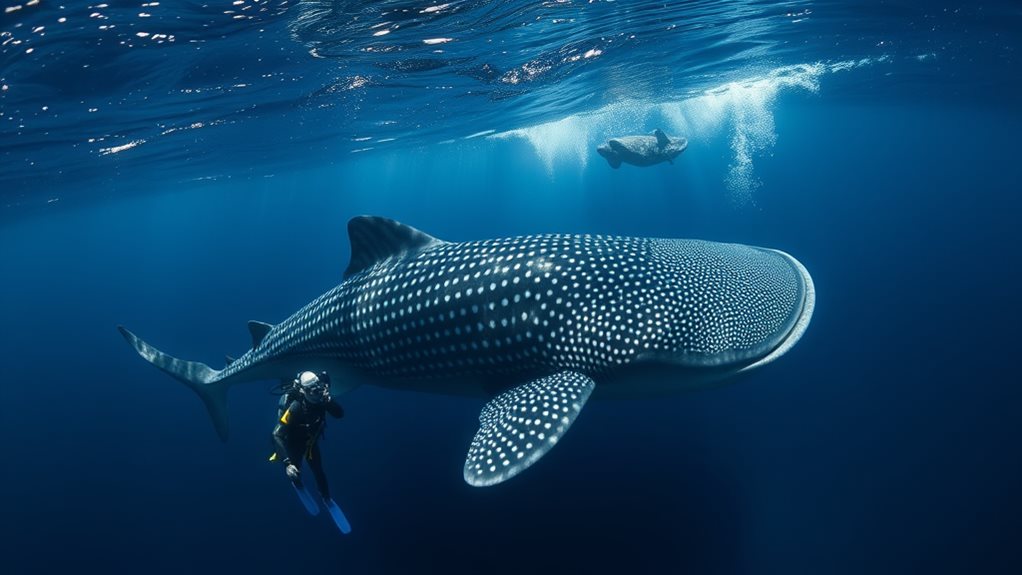
Donsol whale shark sightings aren't guaranteed, even during peak season (February-April). Sightings have declined since 2011.
Whale shark appearance depends on unpredictable migration and food availability. Expect a potentially lengthy search.
Water conditions may be murky, limiting visibility and photo opportunities. Plankton blooms and currents vary, demanding strong swimming skills and fins.
The swim is physically demanding; children may struggle.
Despite regulations, boat overcrowding can occur, creating a hectic environment. Consider this before visiting; manage your expectations accordingly.
Safety and Precautions
Whale shark encounters are unpredictable. Safety is paramount. A mandatory briefing includes a safety video detailing these rules.
Maintain a 3-meter distance from the head and body, 4 meters from the tail. No touching, riding, or impeding movement. A tail flick can cause serious injury.
Only fins allowed; no scuba gear or motorized devices. Life jackets are recommended for weak swimmers. Use reef-safe sunscreen. No flash photography.
Groups are limited to six swimmers per whale shark, one boat per whale shark. The encounter is limited to three hours. Follow your guide's and the BIO's instructions. Your safety and the whale shark's well-being depend on it.
Are the Whale Sharks in Donsol Comparable to the Marine Life in Dumaguete Dive Spots?
Whale sharks in Donsol offer an awe-inspiring experience, but the vibrant biodiversity of dumaguete dive spots presents an entirely different allure. From colorful reefs to rare critters, Dumaguete captivates divers with its underwater treasures, while Donsol enchants nature enthusiasts with its gentle giants. Both destinations promise unforgettable encounters beneath the surface.
Responsible Whale Shark Viewing
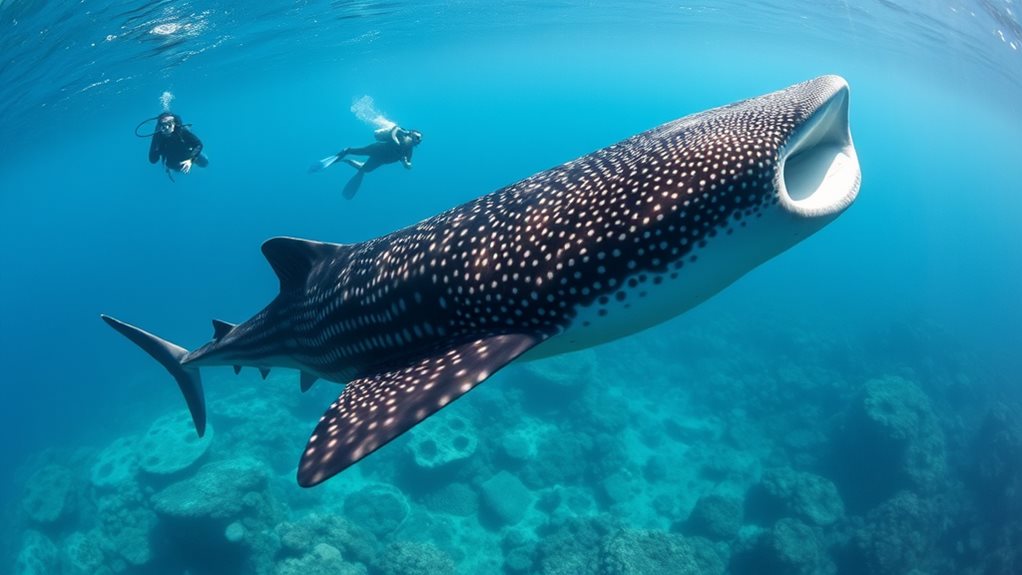
Responsible whale shark viewing in Donsol requires respecting these animals and their environment. Maintain a 3-meter distance from their heads and bodies, and 4 meters from their tails. Avoid flash photography. No feeding, touching, or riding.
Donsol's ecotourism model, supported by the WWF and local communities, prioritizes conservation. Your registration fee funds these efforts. Strict regulations limit boat numbers and water time. You'll receive a pre-trip briefing on responsible practices.
| Ethical Practices | Community & Conservation |
|---|---|
| No feeding, touching | WWF-led initiative |
| Maintain safe distance | Local community involvement |
| No flash photography | Registration fees support conservation |
Sustainable tourism supports local businesses. Respect for whale sharks ensures future generations can enjoy them.
Planning Your Donsol Adventure
Plan your Donsol whale shark encounter trip (November–June; peak sightings February–April, best visibility April–May).
Tours (₱2,550+) include transfers and equipment; add a ₱300 registration fee.
Daily tours start 7:30 AM; be at your hotel lobby by 7:15 AM.
Wear secure, comfortable clothing; fins are essential for non-strong swimmers.
No pets.
Expect a three-hour search; boats hold six snorkelers per whale shark.
Sightings aren't guaranteed. Water clarity may vary.
Snorkeling gear and refreshments are included.
Consider add-ons: Legazpi City or firefly tours (half-day boat rental ₱3,500).
Budget accordingly.